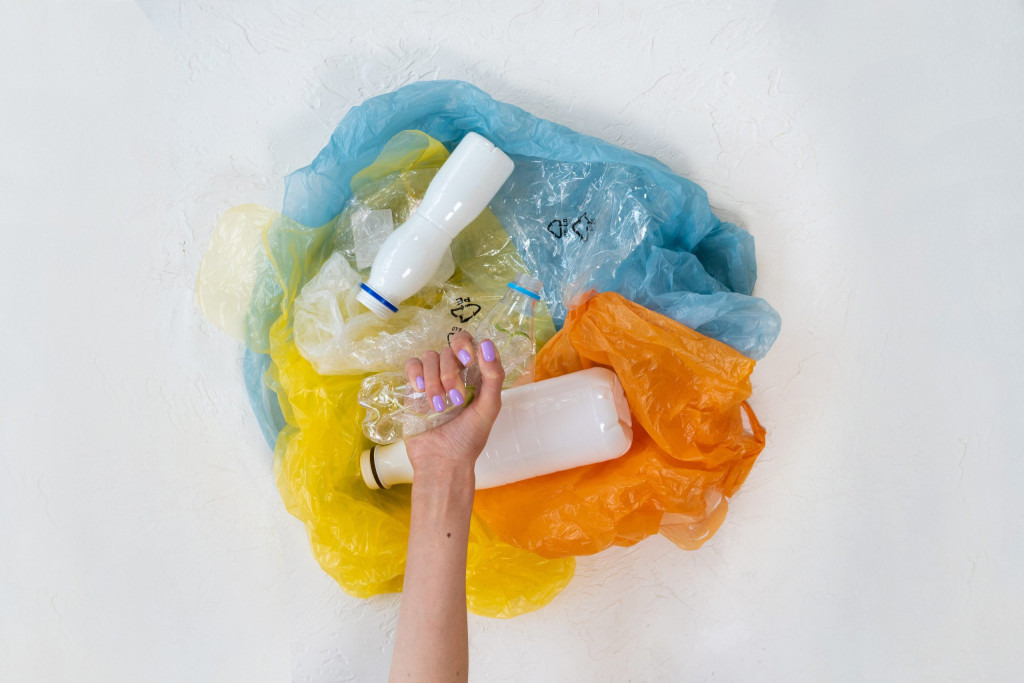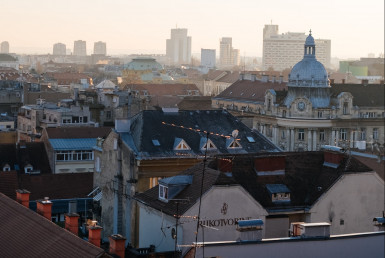Waste Separation in Zagreb

Starting from 01.10.2022 the city of Zagreb is introducing a new process for waste separation.
The city will introduce new bags called “Zg Vrećice” for the mixed waste.
From that date all mixed waste should be packed in these and only these bags, otherwise the building and tenants will get a fine.
How to separate waste in Zagreb?
In total, there are around 3,400 separate waste collection containers in Zagreb, as well as ten stationary recycling centers and nine mobile recycling centers.
Back in 2016, citizens living in Zagreb started dividing their waste. That is when paper was separated from everything else, and in 2019 citizens had to start separating bio-waste, plastic, metal and glass packaging as well.
Here you can find all information about the new model of mixed municipal waste collection.
What are “ZG Vrećice”?
Mixed municipal waste can be disposed of only in standardized waste bags called ZG Vrećice (“ZG Bags”), starting from October 1. There is no change in collection and disposal of recyclable waste, that is, paper, plastic, metal and glass packaging and bio-waste.
The new model of separating waste in Zagreb will require that all users pay a fixed monthly fee for waste removal. This fee was fixed by the Law on Waste Management, that is, the Decision on the public service of municipal waste collection in the City of Zagreb. The disposal of mixed municipal waste will be paid through the purchases of specialized bags for such waste. These bags are available in 10, 20 and 40 liters.
Moreover, the bags for the disposal of municipal waste will be available in more than 500 shops in the city.
The price of the mandatory minimum public service, the fixed part, will be HRK 45, or EUR 5.97 per month for users in the household category and HRK 90, or EUR 11.95.
The goal of this new model of waste collection system is to encourage citizens to reduce the amount of discarded waste and increase the amount of useful waste.
Pricing
Your monthly cost of waste removal will include the fixed part and the price of used bags.
The price of the mandatory minimum public service – the fixed part – is HRK 45, or EUR 5.97 per month for natural persons, and HRK 90, or EUR 11.95 per month for legal entities and craftsmen.
Bags will be sold at HRK 2 / EUR 0.26 per piece of 10 L bag, HRK 4 / EUR 0.53 per piece of 20 L bag and HRK 8 / EUR 1.06 per piece of 40 L bag. The bags will be sold only in packs of 10.
Containers
In accordance with the aforementioned Decision, all users are obliged to keep their containers for the collection of mixed municipal waste and recyclable municipal waste under lock and key, that is, in locked dumpsters or basements, fenced yards, or any other places located in an appropriate way that prevents access to the containers by other people.
If you are unable to keep your containers in a described manner, contact the City and they will allow you to place your waste in public space, in a box for tanks that will also be inaccessible to other people.
Therefore, you should separate all useful, dangerous and problematic waste you produce in your household and throw only the waste you cannot dispose of in any other way into the ZG Vrećica!
You have a right to receive several free ZG Vrećice if you are a service user from the household category and if:
- during the month, you use the services of the recycling yard at least once – in this case you have the right to receive 4 bags for the collection of mixed municipal waste with an individual bag volume of 10 L per month
- you sign a declaration on waste composting and give your consent that the public service provider can carry out a field check with the aim of determining whether the user is actually composting waste – you have the right to receive 4 bags for the collection of mixed municipal waste with an individual bag volume of 10 L per month
- a child up to 3 years old lives in the household and uses diapers – you have the right to receive 4 bags for the collection of mixed municipal waste with an individual bag volume of 10 L per month
- a person in your household uses adult diapers – you have the right to receive 4 bags for the collection of mixed municipal waste with an individual bag volume of 10 L per month
How to separate waste properly?
PLASTIC AND METAL PACKAGING
Plastic and metal packaging are collected separately in yellow bins and yellow plastic bags and containers placed on public areas
What is considered as plastic and metal packaging?
- Polyethylene bags, foils, films, blisters packaging
- Bottles of refreshing drinks, cooking oil, distilled water, cleaning and washing, cosmetics, medicines (except cytostatics), food packaging
- Yogurt cups, containers of cheese, etc..
- Multilayer packaging (tetrapak)
- Plastic caps, plastic plates/cutlery
- Beverage cans/regular cans of food
GLASS PACKAGING
Glass is disposed of in green containers or recycling yards.
What is considered as glass packaging?
- Glass bottles, glass jars, etc.
What is NOT considered as glass packaging?
- Window glass, automotive glass, crystal and optical glass, reinforced glass, laboratory glass
- Light bulbs and fluorescent lamps
- Porcelain and ceramic objects
WASTE PAPER AND CARDBOARD
Waste paper and cardboard is disposed of in blue containers placed on public areas, in containers at users premises and in recycling yards.
What is considered as waste paper and cardboard?
- Newspapers, magazines, prospects, catalogs, notebooks
- Writing and computer paper, folders, and paper bags
What is NOT considered as waste paper and cardboard?
- Indigo paper, carbon paper, photographs and photo paper
- Oily and dirty paper, rubberized labels, diapers
BIO WASTE
Bio waste is disposed of in brown containers at the user’s premises.
What is considered as bio waste?
- Kitchen waste (residues, fruit and vegetables peels, egg shells, coffee grounds, tea bags, leftover bread, salad leaves, kale leaves etc.
- Garden or green waste (branches, fallen leaves, clippings of grass, soil from potted plants, leftover fruit and vegetables)
- Other bio waste (hair, fur, sawdust)
What is NOT considered as bio waste?
- Liquid remains of cooked food
- Meat, fish, bones, skin
- Dairy products, oils and fat
- Ash, rubber, hazardous waste
- Painted and varnished wooden waste
- Paper and glass waste
- Clothes, cigarettes, etc.
More information on https://zgvrecice.cistoca.hr/
*Ask your landlord for the exact days when the garbage is collected, every location has different days and dates.
*All information presented in this article was found on the official websites of “Čistoća” and “Holding Centar Zagreb” and is subject to change based on the updates on the mentioned websites or decisions made by the city of Zagreb




